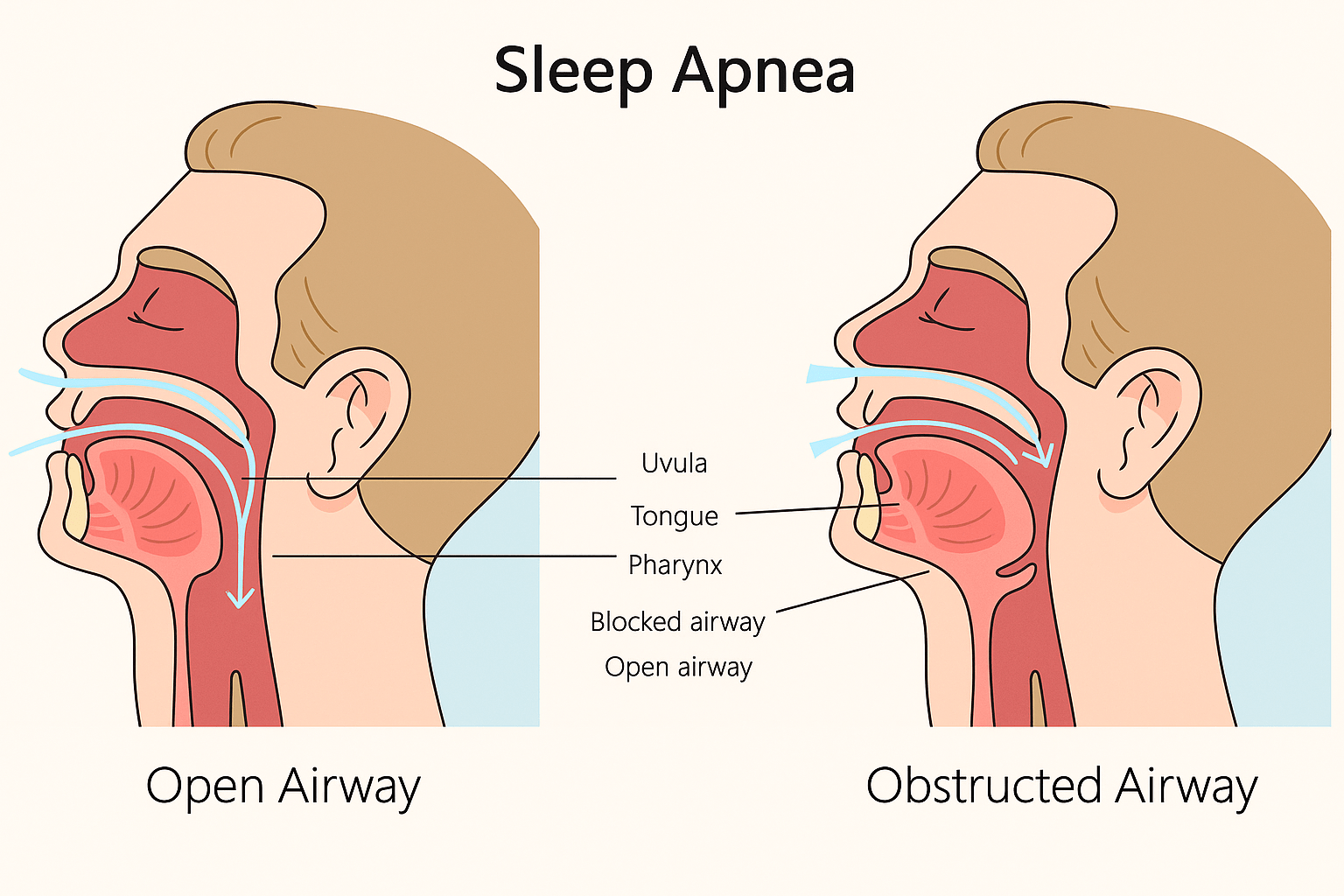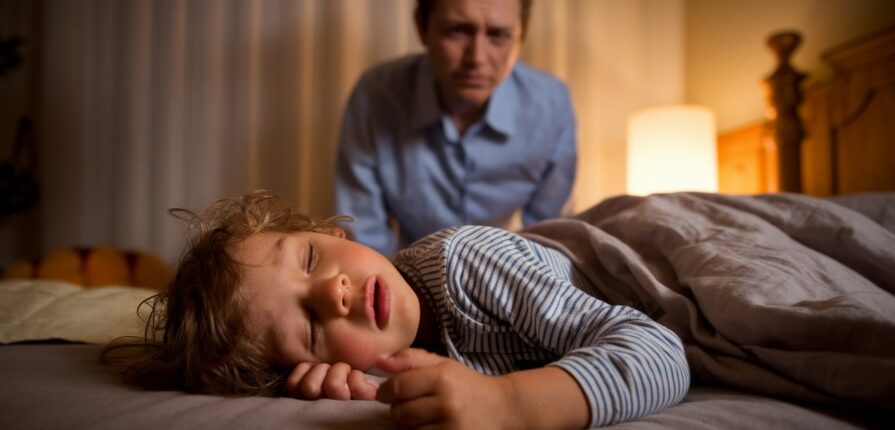As parents, ensuring our children’s health and well-being is always a top priority. However, one often overlooked aspect of health is sleep quality. Sleep apnea, a common yet serious sleep disorder, can significantly impact mental health, leading to issues such as anxiety, depression, and chronic fatigue. While many associate sleep apnea with adults, children can also suffer from this condition, affecting their development, mood, and overall quality of life.
Understanding the connection between sleep apnea and mental health can help parents take proactive steps in seeking sleep apnea treatment for their children. In this blog, we’ll explore how sleep apnea contributes to mental health challenges and what parents can do to address this condition.
What is Sleep Apnea?
Sleep apnea is a condition that causes repeated interruptions in breathing during sleep. These interruptions, known as apneas, can last for several seconds and occur multiple times throughout the night. The most common type in both adults and children is obstructive sleep apnea (OSA), which occurs when the muscles in the throat relax excessively, blocking airflow.
Symptoms of sleep apnea in children may include:
- Loud snoring
- Pauses in breathing during sleep
- Restless sleep or frequent awakenings
- Bedwetting
- Difficulty concentrating during the day
- Irritability or mood swings
- Excessive daytime sleepiness
If left untreated, sleep apnea can have serious consequences, particularly concerning mental health.

How Sleep Apnea Affects Mental Health
1. Sleep Apnea and Snoring
Snoring is often one of the earliest signs of sleep apnea. While occasional snoring is normal, persistent loud snoring in children may indicate airway obstruction. Snoring can cause fragmented sleep, leading to excessive daytime fatigue, irritability, and difficulty focusing in school. Seeking appropriate snoring treatment can help alleviate these symptoms and improve overall sleep quality. Addressing snoring early on can prevent more severe complications associated with sleep apnea.
2. Sleep Apnea and Depression
Research shows a strong link between sleep disorders and depression. Children with untreated sleep apnea are at a higher risk of developing depressive symptoms due to chronic sleep disturbances.
- A lack of deep sleep disrupts the production of serotonin, a neurotransmitter responsible for mood regulation.
- Persistent fatigue and difficulty concentrating can lead to feelings of hopelessness and sadness.
- Children may struggle with social interactions, affecting their self-esteem and overall emotional well-being.
Early intervention and proper sleep apnea treatment can help restore sleep quality and reduce the risk of depression in children.
3. Sleep Apnea and Chronic Fatigue
One of the most noticeable effects of sleep apnea is excessive daytime fatigue. Since sleep is frequently disrupted, children may never reach the deeper stages of restorative sleep, leading to:
- Trouble waking up in the morning
- Frequent napping during the day
- Poor academic performance due to a lack of focus
- Increased risk of hyperactivity or attention disorders (such as ADHD)
Chronic fatigue can have a domino effect, contributing to both anxiety and depression. Proper treatment can help children regain their energy levels and improve daily functioning.
Diagnosing Sleep Apnea in Children
If you suspect your child has sleep apnea, a visit to a pediatric sleep specialist is recommended. Diagnosis typically involves:
- A thorough medical history and symptom evaluation
- A sleep study (polysomnography) conducted in a sleep lab to monitor breathing patterns, oxygen levels, and brain activity
- Home sleep tests (in some cases) for convenience
Treatment Options for Sleep Apnea
1. Lifestyle Changes
For mild cases of sleep apnea, certain lifestyle modifications can help improve symptoms:
- Encouraging a healthy diet and weight management
- Establishing a consistent sleep routine
- Reducing exposure to electronic screens before bedtime
2. Continuous Positive Airway Pressure (CPAP) Therapy
CPAP therapy is a common and effective treatment for moderate to severe sleep apnea. It involves wearing a mask connected to a machine that delivers continuous airflow, keeping the airway open throughout the night.
3. Dental Devices and Orthodontic Treatment
In some cases, dental appliances can help reposition the jaw and tongue to prevent airway obstruction. Orthodontic treatments such as palatal expanders may also be beneficial for children with narrow airways.
4. Surgical Options
For severe cases where anatomical issues contribute to sleep apnea, surgical procedures such as adenotonsillectomy (removal of the adenoids and tonsils) may be recommended.
5. Holistic and Adjunct Therapies
- Sedation and Laser Gum Therapy: Certain cases of sleep apnea may benefit from gum treatments that improve oral structures.
- Dental Implants: In cases where dental issues contribute to airway blockage, implants may be part of a long-term treatment plan.
- Preventative Dentistry and Teeth Grinding Relief: Addressing issues like bruxism (teeth grinding) can also alleviate symptoms associated with sleep apnea.
Helping Your Child Sleep Better
Beyond medical treatments, there are steps parents can take to improve their child’s sleep quality:
- Create a calming bedtime routine that includes reading or light stretching.
- Keep the bedroom dark, quiet, and cool to promote restful sleep.
- Encourage daytime physical activity to regulate energy levels.
- Reduce caffeine and sugar intake in the evening hours.
Prioritizing Sleep for Mental Health
Sleep apnea is more than just a sleep disorder—it directly affects mental and emotional well-being. From increased anxiety and depression to chronic fatigue, the consequences of untreated sleep apnea can impact every aspect of a child’s life. However, with early diagnosis and effective treatment, parents can help their children regain healthy sleep patterns and improve their overall mood and behavior.
If you suspect your child may have sleep apnea, it’s essential to seek medical advice from a sleep disorder specialist in Houston, TX 77074. Addressing sleep apnea early on can lead to better mental health outcomes, ensuring your child thrives both academically and socially.
A good night’s sleep is one of the most powerful tools for maintaining a happy, healthy, and well-balanced life, so let’s prioritize sleep for our children’s well-being!


